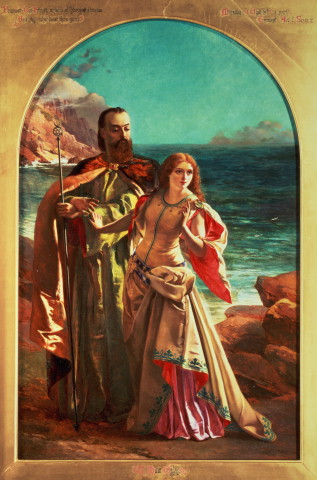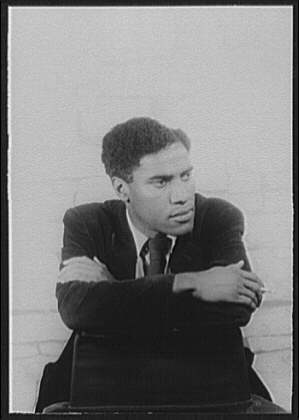
Ecclesiastes is one of the Ketuvim ("Writings") of the Hebrew Bible and part of the Wisdom literature of the Christian Old Testament. The title commonly used in English is a Latin transliteration of the Greek translation of the Hebrew word קֹהֶלֶת. An unnamed author introduces "The words of Kohelet, son of David, king in Jerusalem" (1:1) and does not use his own voice again until the final verses (12:9–14), where he gives his own thoughts and summarises the statements of Kohelet; the main body of the text is ascribed to Kohelet himself.

George Raymond Richard Martin, also known as GRRM, is an American novelist, screenwriter, television producer, and short story writer. He is the author of the series of epic fantasy novels A Song of Ice and Fire, which were adapted into the Emmy Award-winning HBO series Game of Thrones (2011–2019) and its prequel series House of the Dragon (2022–present). He also helped create the Wild Cards anthology series, and contributed worldbuilding for Elden Ring.

Moby-Dick; or, The Whale is an 1851 novel by American writer Herman Melville. The book is the sailor Ishmael's narrative of the maniacal quest of Ahab, captain of the whaling ship Pequod, for vengeance against Moby Dick, the giant white sperm whale that bit off his leg on the ship's previous voyage. A contribution to the literature of the American Renaissance, Moby-Dick was published to mixed reviews, was a commercial failure, and was out of print at the time of the author's death in 1891. Its reputation as a Great American Novel was established only in the 20th century, after the 1919 centennial of its author's birth. William Faulkner said he wished he had written the book himself, and D. H. Lawrence called it "one of the strangest and most wonderful books in the world" and "the greatest book of the sea ever written". Its opening sentence, "Call me Ishmael", is among world literature's most famous.

Brave New World is a dystopian novel by English author Aldous Huxley, written in 1931 and published in 1932. Largely set in a futuristic World State, whose citizens are environmentally engineered into an intelligence-based social hierarchy, the novel anticipates huge scientific advancements in reproductive technology, sleep-learning, psychological manipulation and classical conditioning that are combined to make a dystopian society which is challenged by the story's protagonist. Huxley followed this book with a reassessment in essay form, Brave New World Revisited (1958), and with his final novel, Island (1962), the utopian counterpart. This novel is often compared as an inversion counterpart to George Orwell's 1984 (1949).

Prospero is a fictional character and the protagonist of William Shakespeare's play The Tempest. Prospero is the rightful Duke of Milan, whose usurping brother, Antonio, had put him to sea on a "rotten carcass" of a boat to die, twelve years before the play begins. Prospero and Miranda had survived and found exile on a small island. He has learned sorcery from books, and uses it while on the island to protect Miranda and control the other characters.

Sir Derek George Jacobi is an English actor. Jacobi is known for his work at the Royal National Theatre and for his film and television roles. He has received numerous accolades including a BAFTA Award, two Olivier Awards, two Primetime Emmy Awards, two Screen Actors Guild Awards, and a Tony Award. He was given a knighthood for his services to theatre by Queen Elizabeth II in 1994.

Richard III is a play by William Shakespeare. It was probably written c. 1592–1594. It is labelled a history in the First Folio, and is usually considered one, but it is sometimes called a tragedy, as in the quarto edition. Richard III concludes Shakespeare's first tetralogy and depicts the Machiavellian rise to power and subsequent short reign of King Richard III of England.

William Shakespeare (1564–1616) wrote sonnets on a variety of themes. When discussing or referring to Shakespeare's sonnets, it is almost always a reference to the 154 sonnets that were first published all together in a quarto in 1609. However, there are six additional sonnets that Shakespeare wrote and included in the plays Romeo and Juliet, Henry V and Love's Labour's Lost. There is also a partial sonnet found in the play Edward III.

Julian Patrick Barnes is an English writer. He won the Man Booker Prize in 2011 with The Sense of an Ending, having been shortlisted three times previously with Flaubert's Parrot, England, England, and Arthur & George. Barnes has also written crime fiction under the pseudonym Dan Kavanagh. In addition to novels, Barnes has published collections of essays and short stories.

In literature, an epigraph is a phrase, quotation, or poem that is set at the beginning of a document, monograph or section or chapter thereof. The epigraph may serve as a preface to the work; as a summary; as a counter-example; or as a link from the work to a wider literary canon, with the purpose of either inviting comparison or enlisting a conventional context.

John Simmons Barth was an American writer best known for his postmodern and metafictional fiction. His most highly regarded and influential works were published in the 1960s, and include The Sot-Weed Factor, a whimsical retelling of Maryland's colonial history; Giles Goat-Boy, a satirical fantasy in which a university is a microcosm of the Cold War world; and Lost in the Funhouse, a self-referential and experimental collection of short stories. He was co-recipient of the National Book Award in 1973 for his episodic novel Chimera.

Giles Goat-Boy (1966) is the fourth novel by American writer John Barth. It is a metafictional comic novel in which the universe is portrayed as a university campus in an elaborate allegory of both the hero's journey and the Cold War. Its title character is a human boy raised as a goat, who comes to believe he is the Grand Tutor, the predicted Messiah. The book was a surprise bestseller for the previously obscure Barth, and in the 1960s had a cult status. It marks Barth's leap into American postmodern fabulism.

In Greek mythology, Pygmalion was a legendary figure of Cyprus. He is most familiar from Ovid's narrative poem Metamorphoses, in which Pygmalion was a sculptor who fell in love with a statue he had carved.

Lost in the Funhouse (1968) is a short story collection by American author John Barth. The postmodern stories are extremely self-conscious and self-reflexive, and are considered to exemplify metafiction.
John Robert McCrum is an English writer and editor, holding senior editorial positions at Faber & Faber over seventeen years, followed by a long association with The Observer.

Chimera is a 1972 fantasy novel written by American writer John Barth, composed of three loosely connected novellas. The novellas are Dunyazadiad, Perseid and Bellerophoniad, whose titles refer eponymously to the mythical characters Dunyazad, Perseus and Bellerophon. The book is an example of postmodernism, which can be seen in its metafictional content and its incorporation of stylistic elements that go beyond the traditional novel genre. It shared the U.S. National Book Award for Fiction with Augustus by John Edward Williams.

Ruled Britannia is an alternate history novel by Harry Turtledove, first published in hardcover by New American Library in 2002.
Robert Nye FRSL was an English poet and author. His bestselling novel Falstaff, published in 1976, was described by Michael Ratcliffe as "one of the most ambitious and seductive novels of the decade", and went on to win both The Hawthornden Prize and Guardian Fiction Prize. The novel was also included in Anthony Burgess's 99 Novels: The Best in English Since 1939 (1984).

George William Lamming OCC was a Barbadian novelist, essayist, and poet. He first won critical acclaim for In the Castle of My Skin, his 1953 debut novel. He also held academic posts, including as a distinguished visiting professor at Duke University and a visiting professor in the Africana Studies Department of Brown University, and lectured extensively worldwide.















